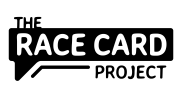Sonia Loya,
San Juan Capistrano, CA
I’ve always been confused about my “race” when I see the question “what race are you” in almost every government form. Why does my race matter? What difference does it make if our society is a promoter of diversity? Why does government continue to ask this question? Why do they care? People like me usually feel stopped when we see the question about race on a form. My initial thought is, I don’t know…I don’t fit my ancestry in one box, I’m a mestiza. I can be indigenous and white at the same time. When I’ve asked the person who I need to submit my form too to clarify, the usual response is, just choose one. I ask again, why does the government still care about race? This week I learned about the origins of race. According to The History of Anthropology: A history of racism, “The concept of Differential Worth explains that races were ranked according to intellectual and moral standards that were based on the researcher’s population affiliation (or ancestry).” With globalization, I ask again, why does race matter? In conversations, race is still used in a derogatory way, hence why we find offensive comments towards a “race” as racist. Before globalization, stereotypes may have been applicable. But now, most “races” are exposed to others and have adapted behaviors and lifestyles depending on the preference of individuals. Is race just another check box or data point? if it is, it’s a variable input since many of us respond guessing. Races are so mixed today, that liking dot’s to assess our ancestry linage seems impossible, I say this from lack of experience. I am a millennial who like many pollsters on the MTV survey mentioned in Is The Millennial Generation’s Racial Tolerance Overstated? Interview, I did not grow up talking about race. Race is something we learn about in our adult years, at least I did. In my house I don’t recall my father or mother talking to the children about race in our home, or teachers teaching us about what race we are, or other kids talking about what race they are. The closest thing to addressing my race was, where were you born and knowing I am Mexican. I also agree with those that said that racism is a thing of the past just like I believe saying pink is for girls and blue is for boys is a stereotype from the past. I address people by their name and the experience I have with the individual, I don’t use stereotypes based on color of skin, intelligence, birthplace, or ancestry. I think society needs to move on and only use the Human Race when talking about race.






